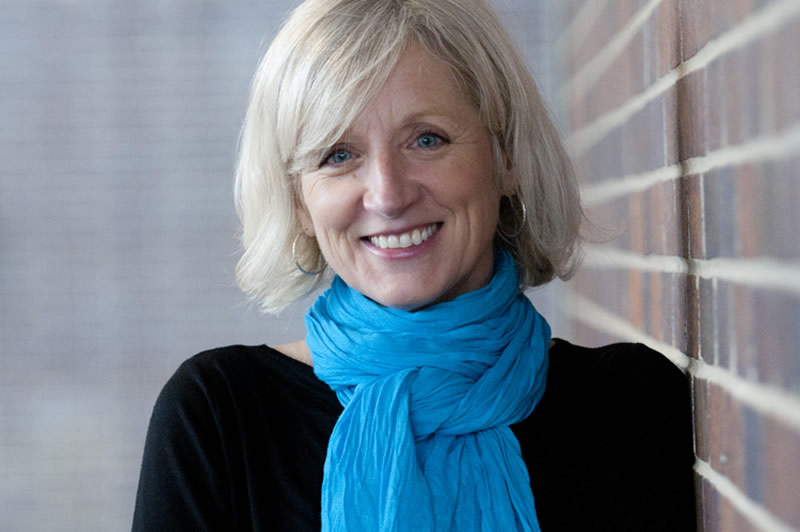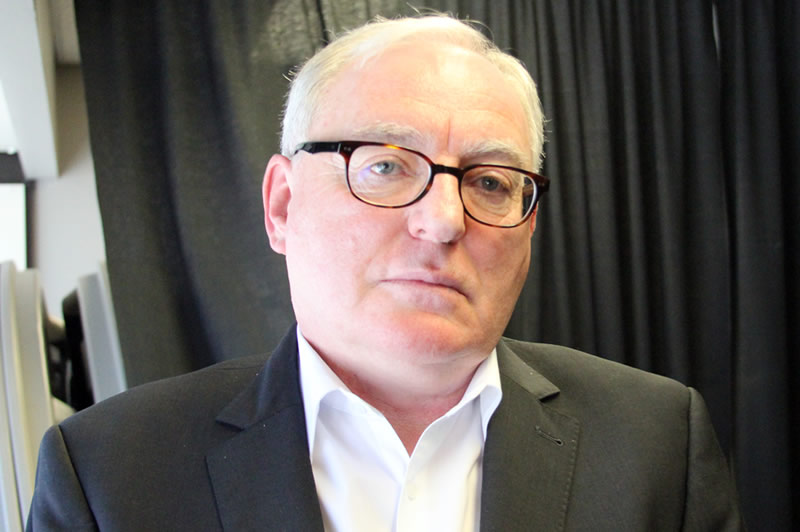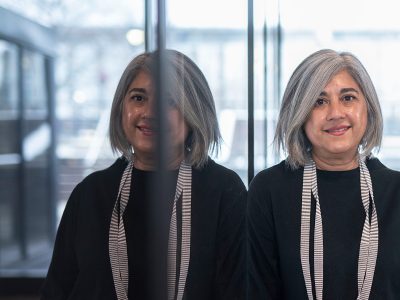Karim Karim spends much of his time out of the public eye – teaching, researching and writing.
But like many of his colleagues at Carleton University’s Faculty of Public Affairs, his research is deeply relevant to society’s top concerns and discussions – namely, the rise of insurgencies in Muslim and western societies.
“We’re supposed to be smarter in the 21st century,” insists Karim. “Why are we using bombs to address these insurgencies?’’
Karim will be advocating for a new approach based on cross-cultural communication during FPA Research Month running from Feb. 24 through March 24.
In a panel discussion entitled “Preventing Future Insurgencies,” Karim will offer insight from his research in Spain and other countries where Muslims and Christians have historically built peaceful societies together.
“We are proposing a different way to look at things,’’ he explains. “We need to rediscover the core messages, ideas and cultures of both Muslim and western societies.’’
The School of Journalism and Communication event is one of more than 30 that will highlight research based on some of the most pressing issues of today, ranging from privacy, government surveillance and the use of drone technology to the success of African development and diplomacy.
“Our mission at the Faculty of Public Affairs is to encourage discussions and debate that contribute to a civilized, informed and democratic society,” explains Dean André Plourde. “FPA Research Month is an opportunity for us to introduce new ideas into the public discussion.”
The month-long celebration will feature student and faculty research symposiums, panel discussions organized by the faculty’s 12 academic units and major lectures given by Toronto Star reporter Kevin Donovan, well-known economist Jim Stanford, and Internet and data specialist Kate Crawford.
The public is also invited to the Living Books Series on March 16, which offers individuals or groups a chance to “sign out” a professor for a conversation based on individual interests.
For the School of Social Work, FPA Research Month presents an opportunity to create a blueprint for an upcoming study on poverty. “More than Getting By: Putting Daily Life at the Heart of our Struggles” will be an innovative mini-conference, hosted by Social Work and the Institute of Political Economy on March 20.
“A lot of attention is paid to income inequality, but we are considering what is necessary for daily life,” says Susan Braedley, a professor of Social Work and Political Economy. “People in a low-wage economy are struggling to pay for housing, food, and care–for themselves, their children, and aging parents.”

Susan Braedley, a professor of Social Work and Political Economy
Funded by the Centre for Research on Poverty and Social Citizenship at Carleton and the Canadian Association for Work and Labour Studies, the conference is bringing in researchers from across Canada, along with graduate students, community activists, and alumni to consider these issues in facilitated roundtable discussions.
“We hope this will be the start of a community-based research project that will look at the needs of everyday life,” she adds
Carleton will also host the launch of YouthREX: the Youth Research and Evaluation Exchange, a grassroots research program funded by the province.
As with the “Daily Struggles” event, the YouthREX program draws on the faculty’s commitment to collaboration with community leaders. The program recruits academics to work with youth support professionals to assess their programs and share best practices.
“There’s fabulous stuff happening in these really small centres, but the staff doesn’t always have the capacity or resources to carry out research that documents their impact on youth,” explains Prof. Sarah Todd, academic lead for the Ontario East knowledge mobilization hub.
Todd will join youth support workers on Feb. 25 to share experiences working together through YouthREX and to put a call out for community and academic partners.
But while many FPA researchers work closely within the Ottawa community, others take their skills abroad—as is the case with Political Science Prof. Piotr Dutkiewicz.

Political Science Prof. Piotr Dutkiewicz
His focus is on the plight of the everyday Russian in the post-communist era.
“We hear about Russia from the perspective of power politics,” says Dutkiewicz, who is cross-appointed to the Institute of European, Russian and Eurasian Studies (EURUS). “What are missing are the stories of ordinary people and how the transition from communism to a market system has affected their social structure, their lifestyle and their values.”
Entitled “The Evolution of Russian Society Since 1991: Actors, Attitudes and Practices,” the FPA Research Excellence Award Symposium on March 17 will feature Russian experts who have studied the effect of societal change on the “silent majority” of Russian people.
Dutkiewicz says the event will offer insight not only into Russian society, but on events in the West as well.
“The issue of dialogue between elites and the majority of the society is not only a Russian problem, it’s a western problem. It’s about the quality of our democracy, of representative power, of Parliament,” explains Dutkiewicz.
Dutkiewicz’s symposium is one of many FPA Research Month events intended to contribute to building better societies by enriching and enlivening the public debate on issues confronting democratic institutions around the world.
As such, it’s an ideal example of the mission of Canada’s only public affairs faculty.
“Our goal is to bring Public Affairs to the public, and to bring the public into Public Affairs,” says Plourde. “We invite anyone with an interest in research that influences our society and democracy to join us for our FPA Research Month events.”
Thursday, March 5, 2015 in Faculty of Public and Global Affairs
Share: Twitter, Facebook



